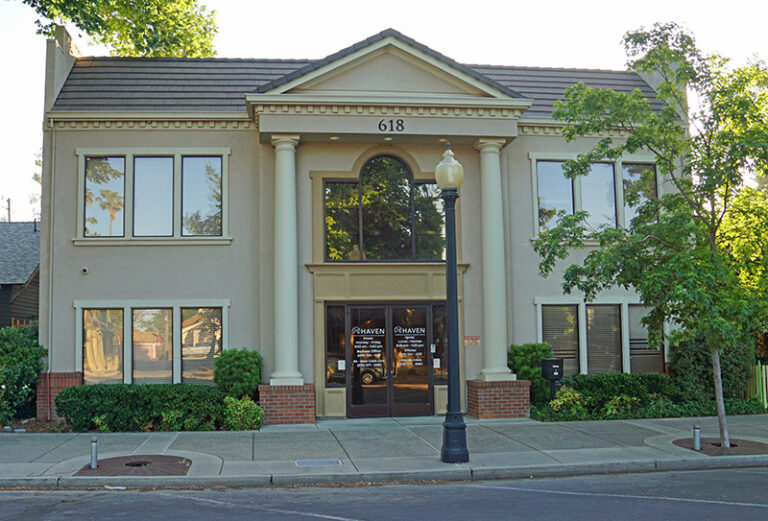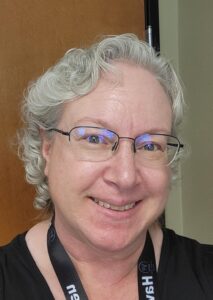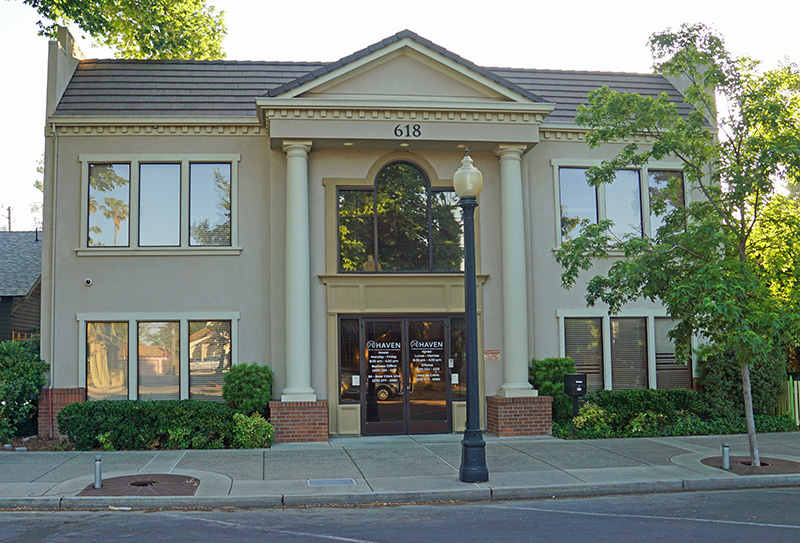
Healthy Alternative to Violent Environments (HAVEN) is a Stanislaus County-centered catalyst for individual empowerment and societal change, advocating for those impacted by domestic violence, sexual assault, or human trafficking and working to end gender-based violence.
It was only weeks into the pandemic and people were dying by the thousands across the globe. Most of us here in the Valley hunkered down in our homes as best we could – isolation was the goal, after all.

But as society quickly locked down, May Rico recognized a looming crisis in the making for those experiencing domestic violence. Ms. Rico, the longtime Executive Director of HAVEN, understood all too well that abusers could take easily advantage of their victims under such circumstances.
“Isolation is one of the tools controlling people use to keep people under their control – and with the pandemic, the disease was doing it for them,” Ms. Rico explained recently. “All of the safety valves that someone might have had without the pandemic – like going to work or school where you could escape your abuser – all the different connections where in the past you could conceivably seek help – those were suddenly gone.”
But like so many other heroic individuals who continued to do their jobs into the teeth of the pandemic’s worst months, Ms. Rico and her staff at HAVEN never stopped providing services to those seeking shelter from their abusers – either in the agency’s own facility or in nearby hotels; they continued serving the community as comprehensively as they always had in the past, albeit with a few new technical wrinkles, such as using Zoom for counseling sessions and group therapy.
“One thing about our Rape Crisis Center,” Ms. Rico pointed out. “During the pandemic, some Rape Crisis centers in California stopped responding in person for sexual assault exams for different reasons. But our county never did. Our county continued responding to victims of rape and sexual assault by providing sexual assault exams all through the pandemic. And our advocates were walking into hospital emergency rooms alongside everyone else who was showing up for COVID treatment.”
“Remember, the hospital was a scary place to be for a while. But our advocates showed up there to meet face to face with victims, and I am very proud of them for doing that, and very proud of the program manager we had at the time for working with the hospitals to find out what their protocols were and to ensure that our staff felt comfortable in that setting. I am also grateful that hospitals continued to let us use their facilities, because that wasn’t always the case in other counties in the state.”
With the pandemic seemingly now in the rear view mirror, Ms. Rico notes that “we have gone back to mostly in-person work, but with a few changes. We learned that we were able to serve clients that we weren’t able to before, and are relying on technology now to provide remote counseling and remote case management. And our support groups are still running on Zoom – that’s something that the people who access support groups have expressed works for them. Even if we are out of the pandemic, it can still feel kind of scary to be in a room shoulder to shoulder for two hours with people you don’t know.”
With roots dating back to 1977, HAVEN has a long history as well as a strong philosophical commitment to adapting to the needs of our community. It has also always provided a wide array of services that are available to everyone experiencing domestic violence, sexual abuse, or human trafficking, including both adults and children. One of its core strengths lies in its adaptability to crisis, as evidenced by its performance during those bleak days when COVID changed so many old assumptions.
‘I want everyone in our community to know that we are here,” Ms. Rico said, “and that we do our best to meet the needs of people who come to us – that means everyone who is experiencing these issues regardless of gender, gender expression, sexual orientation, or immigration status.”
“People think of us only as a shelter, but only about 12 % of our services are residential services” she continued. “Our mission statement is a good place to start, because it gives equal weight between intervention and prevention. We will never end violence if all we’re doing is working with victims. To end violence you have to do things which change the societal structures in our culture that lead to violence.”

The venerable agency recently underwent a name change to further underscore its commitment to the entire community. The official name of the agency is now Healthy Alternatives to Violent Environments – although the long familiar HAVEN is the acronym the agency still goes by. Ms. Rico suggested that, following discussions with both the staff and board, “we came to the determination that we needed to change our name to something that represented the inclusivity of the populations we were trying to serve – all those those impacted by domestic violence, sexual assault, and human trafficking.”
Indeed, the National Coalition Against Domestic Violence notes on its website that one in three women and one in four men have experienced some form of physical violence by an intimate partner; and details a plethora of other data to show how prevalent domestic violence and sexual assault are in our society.
“It is important to understand that a man who is being abused has the same need for safety and the same need for safe space as a woman and it may be more difficult for him to reach out because of the stigma around male-gendered socialization and the expectation of being able to protect yourself,” Ms. Rico stated. “There are barriers there for men that aren’t necessarily there for women, especially if the abuser is a woman, because people will chuckle about it. If you are non-binary, or if you are Trans, you have layers and layers of barriers before you might feel safe enough to access services.”
Ms. Rico concluded by describing just how devastating the trauma of experiencing domestic violence or sexual assault can be for survivors:
“When someone experiences trauma, something about them changes – the brain is diverted from whatever path of learning or expansion or growth that it was on, and it is now dealing with this injury or threat instead – and something halts. It changes something when people experiences trauma or violence. And for children, who we think of as being so resilient – what would they have been like if they hadn’t experienced that trauma so early in their lives? And if we are talking about one in three women and one in four men experiencing that type of trauma, that type of hijacking, that type of diversion – that’s a lot of people. We’ll never know what the next day might have brought them that is now forever changed.”
“I want community members to know that we are always there for them – and how important their support is to the work that we do. We need that community support if we are to be the organization our community needs us to be.”
If you need help: https://www.havenstan.org/
Call the HAVEN office at (209) 524-4331
(Monday-Friday, 8:30 am – 4:30 pm)
Or call HAVEN”S 24-hour crisis line at:
(209) 577-5980
Toll-free 1-888-45HAVEN
[…] Story continues […]
Tom:
This is such a good article about a really important institution that we hear so little about.
“…one in three women and one in four men have experienced some form of physical violence by an intimate partner” is an appalling statistic. And May Rico deserves accolades for her long-term efforts to help those local people who have been abused. Thank you.
No thank you
Richard Anderson,
I thank you for your comment to this post about Healthy Alternatives to Violent Environments (HAVEN).
Yet, my comment is not a reply to your comment. I saw no other way to make a comment to Tom Portwood’s post. Yet, specifically to Ms. May Rico and others involved.
Dear Ms May Rico, advocates, and, board of directors:
I wholeheartedly agree with the name change. It voices what it needs to say to the public. It tells the community what HAVEN exists to do.
I truely appreciate that you stand as a catalyst for individual empowerment and societal change.
The fact that your very necessary service details, adeptly, what trauma does to an individual. The use of words such as hijacking, diversion, and halting the very lives of those experiencing such heinous injuries is valid.
Far too often people have no idea how domestic violence, or any kind of violent trauma, badly jeopardizes everything about a person’s future. Violence is an atrocity that changes a person forever. This is no slight occurrence.
I could go on for some length of time describing what a victim has to contend with, after. I will save that for HAVEN to teach society, so it is able to change it’s outlook, so as to support growth in the necessary direction.
Thank you for existing, you are a most valuable entity.
Comments are closed.